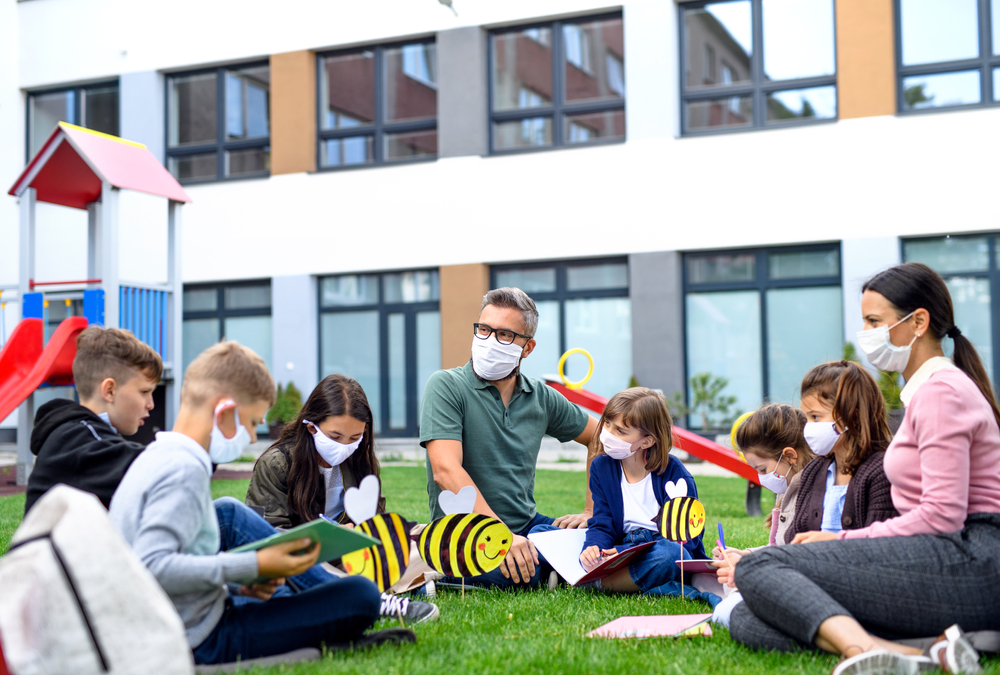The value of interacting with the environment and supporting overall well-being has never been more essential in a world that is becoming more computerised and urbanised. Outdoor education is proving to be a potent tool that goes beyond standard classroom settings and provides kids with life-changing experiences in the outdoors. Students may acquire a strong sense of environmental awareness, improve their physical and emotional health, develop social skills, and form a lifelong connection to nature by engaging in outdoor learning opportunities and activities. Outdoor education is a potent teaching strategy that immerses students in the outdoors and extends learning beyond the walls of the classroom. It provides several advantages that support environmental awareness, individual development, and general well-being.
This article looks at the many benefits of outdoor education, emphasising its role in creating a relationship with nature, increasing physical health, enhancing mental well-being, developing social skills, and incorporating it into the academic curriculum.
Environmental Awareness Development:
The chance it gives children to connect with nature and grow deeply aware of the environment is one of the main advantages of outdoor education. Students develop a deep respect for the environment by seeing the beauty, complexity, and fragility of natural ecosystems firsthand. They gain knowledge about environmental protection, sustainability, and conservation. Students that participate in outdoor education develop a feeling of responsibility and are inspired to become environmental activists, which helps to improve their communities.

Promoting Physical Health and Well-Being
By encouraging children to participate in diverse outside activities, outdoor education enhances physical health and well-being. These sports, which range from kayaking and rock climbing to hiking and camping, foster physical fitness as well as coordination, strength, and endurance. Additionally, outdoor activities provide students with the chance to play actively, which lowers sedentary habits and encourages a healthy lifestyle. The natural surroundings, sunlight, and fresh air all help to increase mood, lower stress levels, and promote general well-being.
Promoting Mental and Emotional Health
It has been demonstrated that spending time in natural surroundings has considerable positive effects on one’s emotional and mental health. Students that participate in outdoor education can get away from the stresses of everyday life, find some peace, and rediscover who they are. Natural settings offer a calming setting that encourages relaxation, lessens anxiety, and enhances mental clarity. In addition to improving emotional well-being, outdoor activities provide chances for self-reflection, self-discovery, and resilience building.
Collaboration and Social Skills Development
Collaboration among students is encouraged and the development of fundamental social skills is fostered via outdoor education. Communication, cooperation, and problem-solving are encouraged through taking part in outdoor activities and team-building exercises. Students gain the ability to collaborate, hear other people’s viewpoints, and overcome obstacles as a group. These interactions foster respect, empathy, and strong interpersonal bonds, increasing social skills that are beneficial in many facets of life.
Resilience Development and Problem-Solving Skills
Students who participate in outdoor education are given special challenges and chances to develop resilience. Students gain the ability to adapt, endure, and overcome difficulties when they encounter novel locations, unpredictable weather, and physical impediments. They become more self-assured, learn from mistakes, and tap into their inner power. Instilling a growth mentality in students through outdoor education helps them see obstacles as chances for personal development and knowledge.
Building a Culture of Sustainability
The promotion of sustainable practices and the development of a sense of stewardship are key goals of outdoor education. Students learn directly about the interdependence of ecosystems and how humans affect the environment by being exposed to natural settings. Responsible conduct, moral decision-making, and a dedication to sustainable practices are all encouraged through outdoor education. Students develop environmental stewardship skills as they learn to appreciate and preserve the natural world.

Academic Curriculum
The whole educational experience is improved by including outdoor education in the academic curriculum. Different courses can be related to outdoor activities, offering chances for experiential learning that support what is learned in the classroom. Field research may be done in science schools, historical studies can visit outdoor historic locations, and art classes can get ideas from the outdoors. Students have a more thorough and interesting educational experience when outdoor education is combined with conventional academic disciplines.
A distinctive and effective teaching strategy, outdoor education promotes stewardship, social skills, physical and emotional health, and environmental awareness. We can enable kids to build a strong connection with nature, encourage sustainable practices, and create a comprehensive awareness of the world around them by recognising the many advantages of outdoor education and incorporating it into the academic curriculum. A better, more ecologically conscious future is made possible by embracing the transformational potential of outdoor education.
